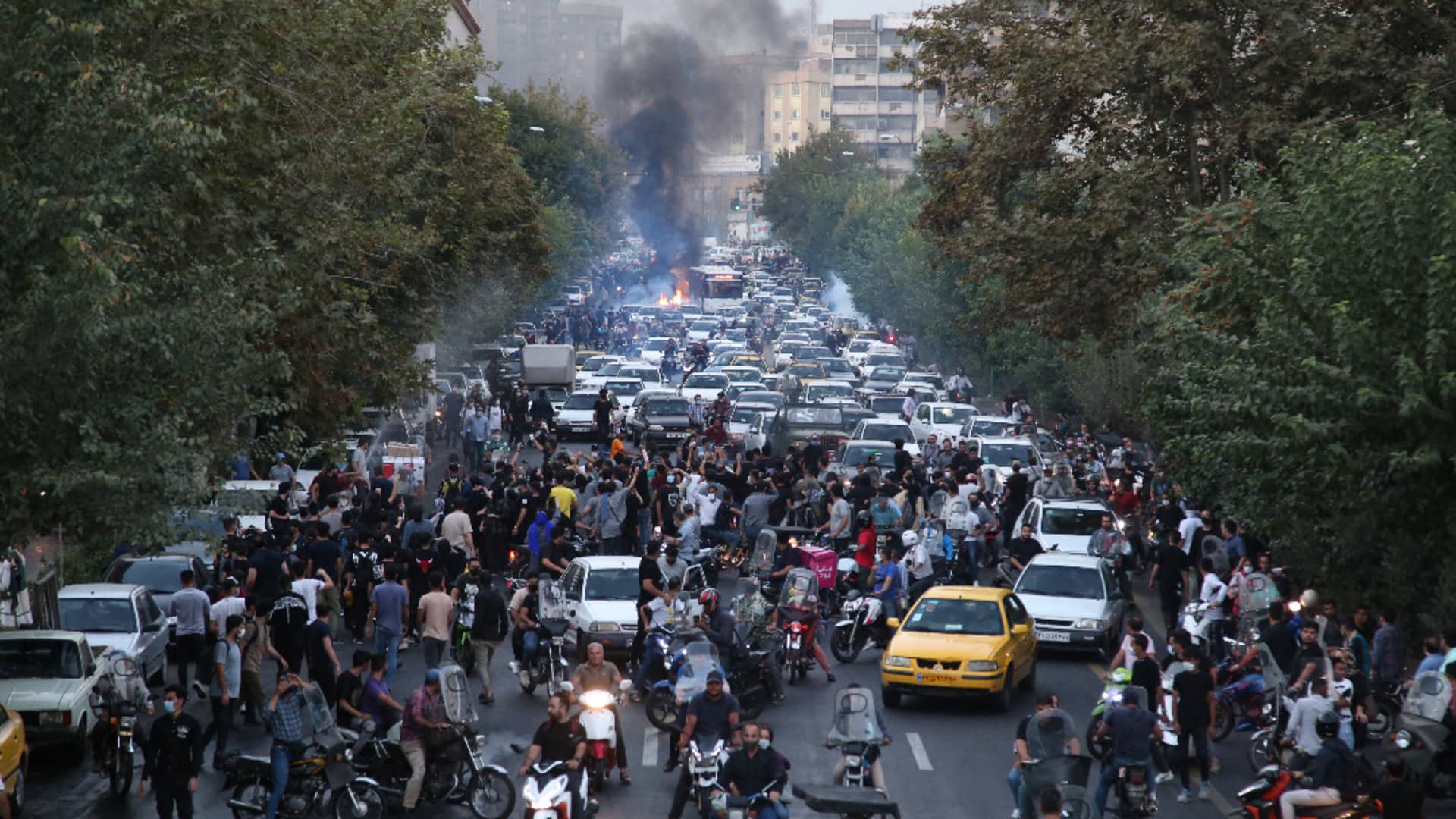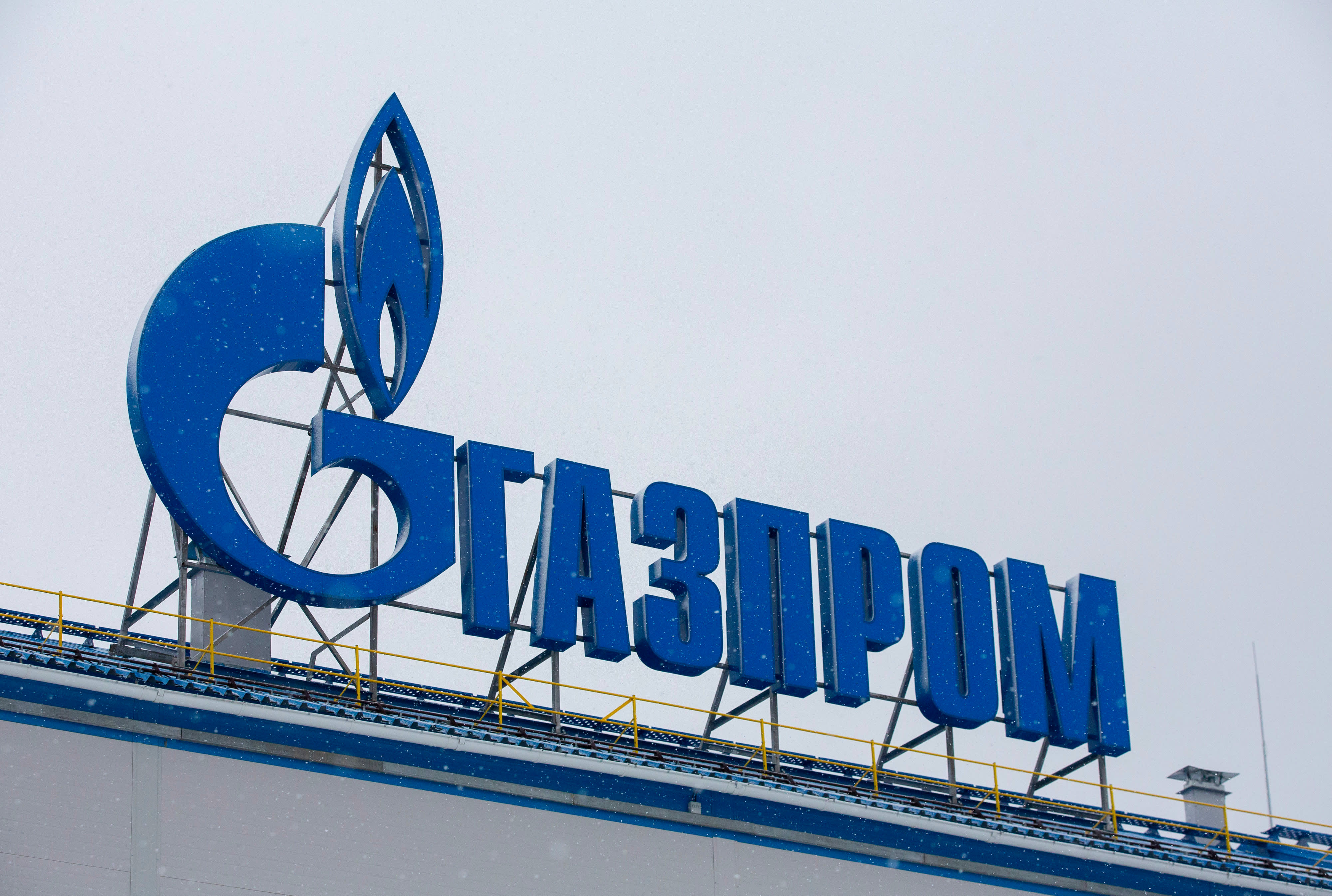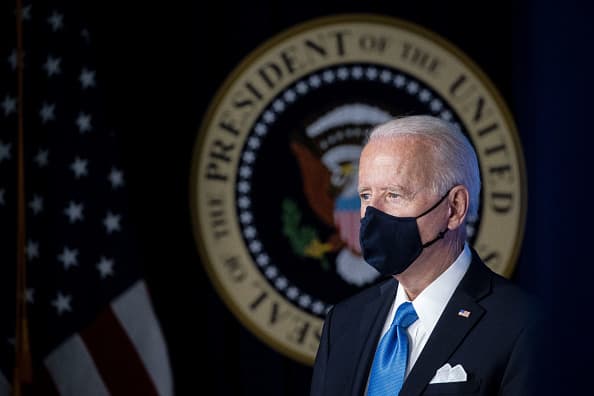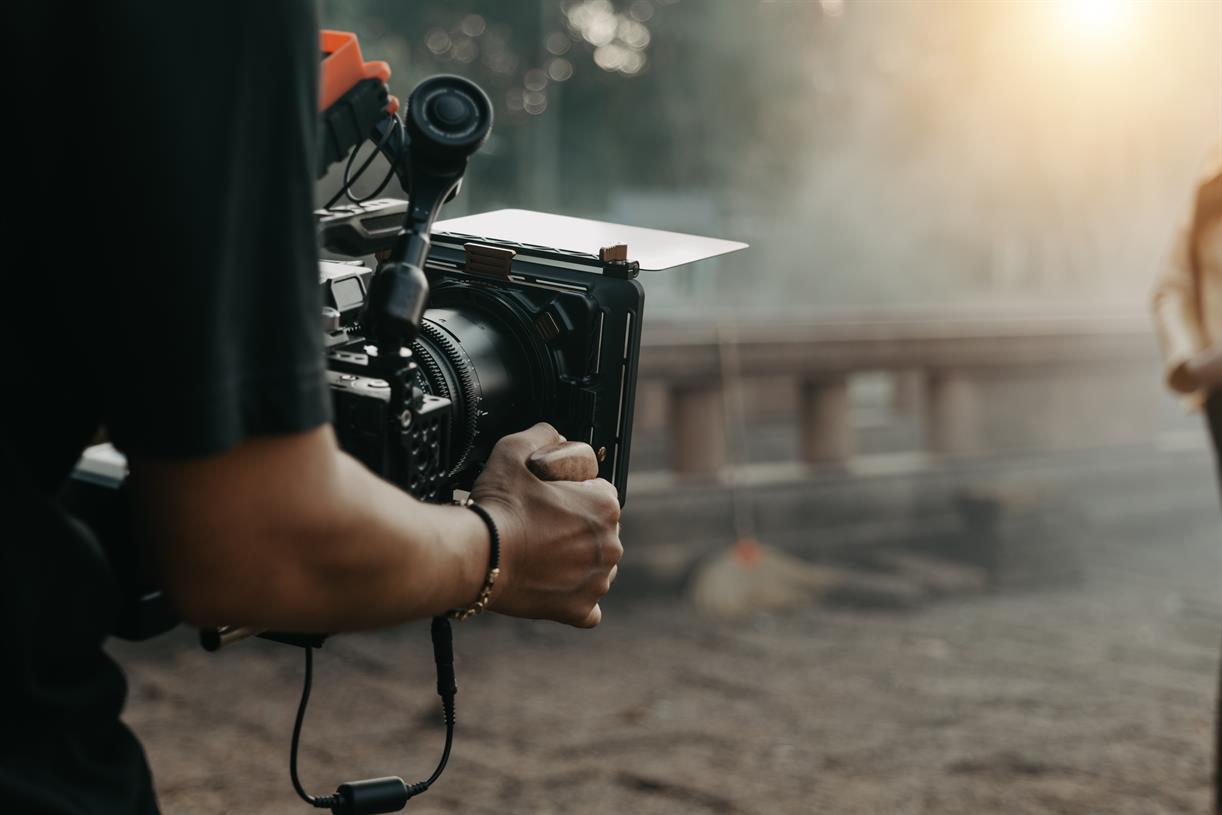Iran executes second protester after rapid trial as EU plans more sanctions
Iran has long held what activists and other governments say are sham trials in order to imprison or execute critics of the state.

Iranian demonstrators take to the streets of the capital Tehran during a protest for Mahsa Amini on Sept. 21, days after she died in police custody.
Afp | Getty Images
Iran executed a second detained protester on Monday, its state media reported, after a rapid trial as unrest and anger toward the government continue to boil over around the country.
Twenty-three year old Majidreza Rahnavard was put to death in a public hanging less than a month after his arrest, with pictures from Iranian Mizan news agency showing his body hanging from a crane. Cranes have been commonly used for public hangings since the early days of the Islamic Republic after its establishment in 1979.
Rahnavard was accused by Iran's judiciary of fatally stabbing two members of the Basij security forces, which is a paramilitary wing of Iran's Revolutionary Guard. The Basij, along with other parts of the country's security apparatus, are carrying out bloody crackdowns on Iran's protesters, who have been demonstrating in more than 50 cities since mid-September.
Activist group Iranian Human Rights, which is monitoring the protests, says that at least 488 people have been killed since that time, with another 18,200 detained.
Iran has long held what activists and other governments say are sham trials in order to imprison or execute critics of the state. Rahnavard was charged with the crime of "moharebeh," which in Farsi means "waging war against God" — a charge levied against many opponents and critics of the state in the last 43 years, which carries the death penalty.
"Another 23-year-old protestor, Majidreza Rahnavard, was just executed in Mashhad, Iran," Karim Sadjadpour, a senior fellow and Iran expert at the Carnegie Endowment for International Peace, tweeted on Monday.
"No lawyer, no due process, tortured confession, sham trial. He was hanged for 'waging war against God.' This cruelty in the name of religion is what has secularized so many young Iranians."
People gather in protest against the death of Mahsa Amini along the streets on September 19, 2022 in Tehran, Iran. Anti-government uprisings are to remain a sticking point and increase in frequency in Iran's political landscape as dissatisfaction with other factors like the country's economic conditions surface, according to analysts.
Getty Images | Getty Images News | Getty Images
Rahnavard's hanging comes just four days after Iran executed Mohsen Shekari, the first detainee to be put to death for involvement in the protests. He was accused of blocking a street and attacking a member of the security forces with a knife in Tehran.
Shekari's family were reportedly not told in advance that he would be executed, and learned only after the hanging was carried out.The courts in which the protesters were tried — Tehran's Revolutionary Court for Shekari and Mashhad's Revolutionary Court for and Rahnavard — have been criticized internationally for not allowing defendants to choose their own lawyers or viewing the evidence being used against them.
The protests rocking Iran, and proving to be the largest challenge to the government in decades, were sparked by the death of 22-year-old Mahsa Amini, an Iranian Kurdish woman who died in police custody after she was detained for allegedly violating Iran's strict headscarf laws.
The demonstrations, which have included strikes, walkouts, marches and more examples of civil unrest, have swelled into a broader movement calling for the removal of the entire Islamic Republic regime.
Western leaders have expressed shock and outrage over the execution carried out in Iran thus far.
"These executions are a blatant attempt to intimidate people, not for committing crimes but just for taking their opinions to the streets, just for wanting to live in freedom," German Foreign Minister Annalena Baerbock said from Brussels.
A protester holds a portrait of Mahsa Amini during a demonstration in support of Amini, a young Iranian woman who died after being arrested in Tehran by the Islamic Republic's morality police, on Istiklal avenue in Istanbul on September 20, 2022.
Ozan Kose | AFP | Getty Images
She and other EU leaders are set to impose new sanctions on Iran for its crackdown on the protesters as well as its support for Russia in the form of providing Moscow lethal drones for use in its war in Ukraine.
"With this package of sanctions, we have particularly targeted those who are responsible for these executions, who are responsible for this violence against innocent people," Baerbock said.
"These are in particular the Revolutionary Guards, but these are also those who are trying to intimidate or further punish people with forcibly made videos."
Josep Borrell, the EU's foreign policy chief, said the bloc was set to "approve a very, very tough package of sanctions" on Iran's government.
The EU "will take any action we can in order to support young women, to support peaceful demonstrators and certainly rejection of the death penalty," Borrell said. He added that he spoke with Iran's foreign minister about the latest execution and Tehran's response to the protests, and described it as "not an easy conversation."

 Tfoso
Tfoso 































